Ultimate Guide: Types of Towel Material for Every Need
Understanding the Core: types of towel material in B2B Applications
In the discerning world of B2B procurement, particularly within the hospitality, healthcare, and wellness sectors, the selection of towel materials is a critical decision impacting both operational efficiency and end-user experience. Beyond mere aesthetics, the underlying types of towel material dictate performance characteristics such as absorbency, durability, drying time, linting, and tactile comfort. This comprehensive guide delves into the technical specifications, manufacturing processes, and strategic considerations for selecting optimal towel materials for professional environments, ensuring long-term value and superior service delivery.
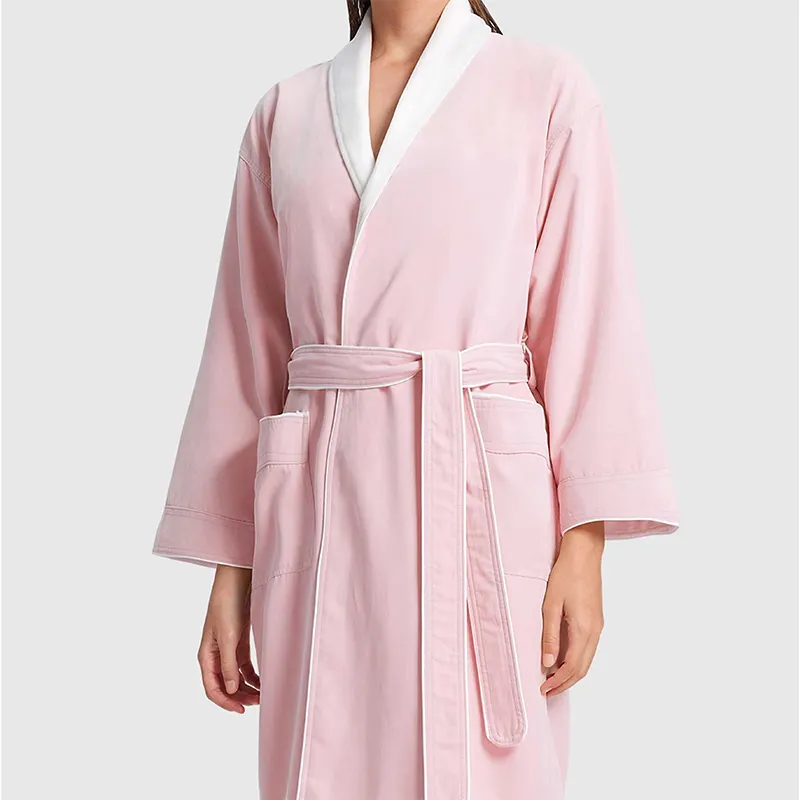
The global textile industry for hospitality and institutional linen is a multi-billion dollar market, with projections indicating continued growth driven by rising standards in guest experience and hygiene. Data from industry reports suggest that the global hotel linen market alone is expected to reach approximately $15-20 billion by 2028, with a significant portion attributed to high-quality towel procurement. Understanding the intrinsic properties of different types of towel material is paramount for businesses aiming to optimize costs without compromising quality.
Manufacturing Process Flow of Advanced Towel Materials
The journey from raw fiber to a high-performance towel is a sophisticated multi-stage process involving precision engineering and stringent quality control. The specific types of towel material dictate variations in this flow, but core principles remain consistent, focusing on fiber preparation, weaving/knitting, and specialized finishing.
1. Fiber Sourcing & Preparation
Selection of premium raw fibers (e.g., long-staple cotton, bamboo, microfiber polymers). Ginning, cleaning, and carding to align fibers and remove impurities. Blending for composite materials.
2. Spinning & Yarn Production
Fibers are spun into yarns. Techniques include ring spinning for strength and fineness, open-end spinning for bulk, or vortex spinning for low lint. Critical for yarn count and twist.
3. Weaving/Knitting
Yarns are woven (e.g., terry loom for loops, dobby for patterns) or knitted (e.g., warp knit for microfiber). Pile height, density (GSM), and base weave structure are formed.
4. Dyeing & Finishing
Desizing, scouring, bleaching, and mercerization to enhance strength, luster, and dye uptake. Dyeing for color consistency and fastness. Softeners, anti-microbial treatments, and quick-dry finishes applied.
5. Cutting & Stitching
Fabric is cut to specified dimensions. Hemming and stitching using industrial-grade machines for durability and anti-fray properties. Reinforcement at stress points.
6. Quality Control & Packaging
Rigorous testing for GSM, color fastness, absorbency, tensile strength, and shrinkage. ISO 9001, OEKO-TEX Standard 100 compliance. Folding, packaging, and dispatch.
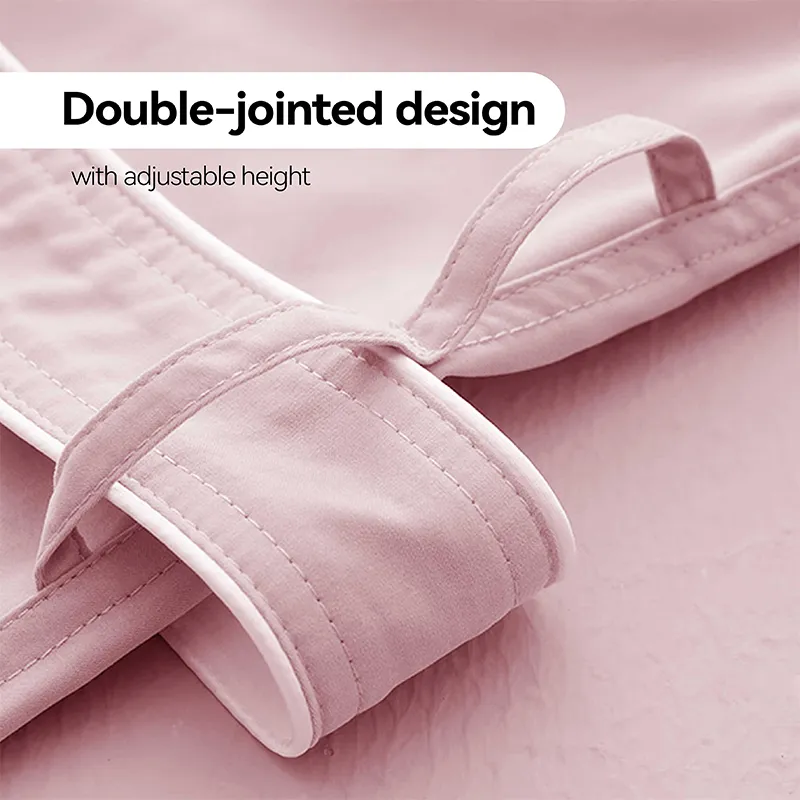
Testing Standards & Service Life
Adherence to international testing standards is non-negotiable. Key certifications include ISO 9001 for quality management, OEKO-TEX Standard 100 for harmful substances, and ASTM D5034 for tensile strength. For professional use, a towel's service life is paramount. Premium cotton terry towels, with proper care and laundering, can withstand 200-300 industrial washes, while high-grade microfiber options can exceed 500 wash cycles, demonstrating exceptional return on investment.
Target industries include hospitality (hotels, resorts, spas), healthcare (hospitals, clinics, nursing homes), fitness (gyms, sports clubs), and commercial cleaning. Advantages in these scenarios include superior absorbency, rapid drying, enhanced durability for frequent industrial laundering, and resistance to common staining agents, leading to significant energy savings and extended product life cycles.
Key types of towel material and Their Technical Specifications
The market offers a diverse range of types of towel material, each engineered with specific properties to excel in various applications. Understanding these differences is crucial for informed procurement.
1. Cotton
The perennial standard, cotton offers natural softness and high absorbency. Variations include:
- Egyptian/Pima Cotton: Known for extra-long staple fibers, providing exceptional softness, strength, and absorbency. Ideal for luxury hotels and high-end spas.
- Turkish Cotton: Long staple fibers, renowned for being dense, absorbent, and developing a soft sheen over time. Excellent for bath towels and robes.
- Upland Cotton: Shorter fibers, more common and economical, suitable for general-purpose towels and hospitality settings where cost-efficiency is key for types of washcloth and hand towels.
- Organic Cotton: Grown without pesticides or synthetic fertilizers, appealing to eco-conscious brands.
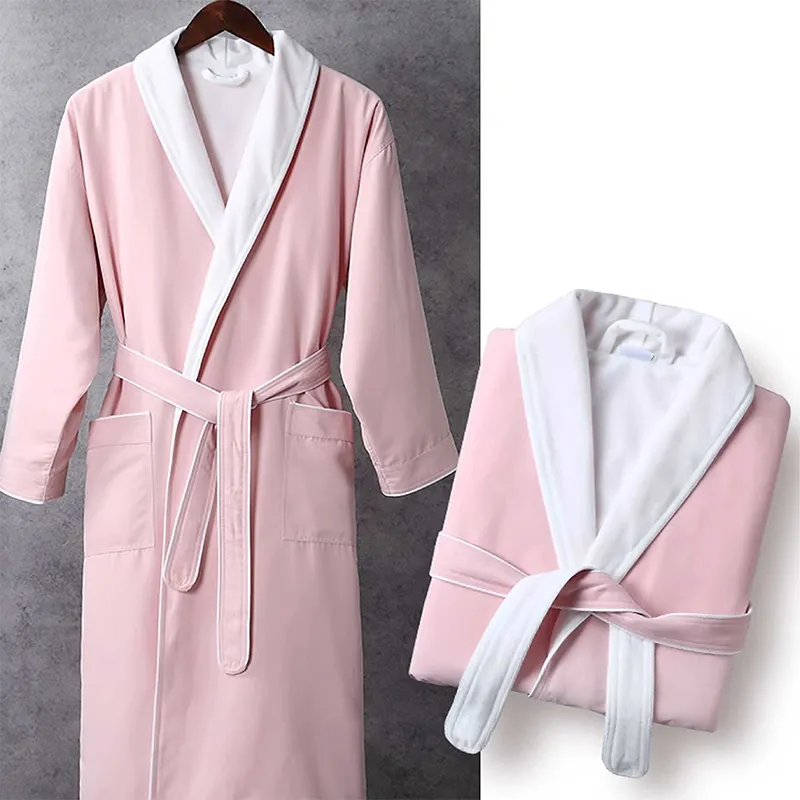
2. Microfiber
Typically a blend of polyester and polyamide (nylon), microfiber towels feature extremely fine synthetic fibers, usually less than one denier. This structure creates a massive surface area and capillary action.
- Technical Advantages: Exceptional absorbency (up to 7-8 times its weight), rapid drying (significantly reducing laundry cycles), lint-free properties, and superior cleaning capabilities. Highly durable.
- Applications: Healthcare (due to lint-free and quick-dry hygienic properties), gyms, car detailing, and specialized cleaning.
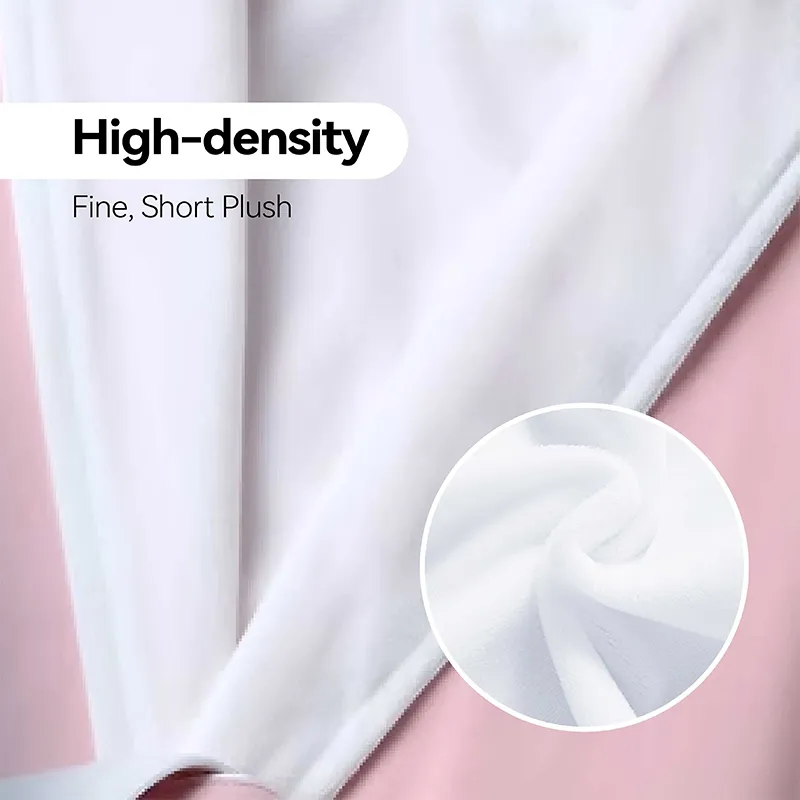
3. Bamboo
Made from bamboo cellulose, these towels are highly sustainable and possess natural anti-bacterial properties.
- Technical Advantages: Exceptionally soft, highly absorbent, hypoallergenic, and resistant to mildew. More eco-friendly in production than traditional cotton.
- Applications: Eco-resorts, spas, high-end hospitality, and sensitive skin applications.
4. Blends (Cotton-Poly, Cotton-Bamboo)
Engineered blends combine the best attributes of different fibers.
- Cotton-Polyester: Often used for durability and reduced shrinkage, particularly in institutional settings. Polyester adds strength and faster drying to some types of towels used in hotels.
- Cotton-Bamboo: Enhances softness, absorbency, and natural antibacterial properties while retaining cotton's familiar feel.
Product Specification Table: Common Towel Material Types
| Material Type | Key Characteristics | Absorbency (Weight % Water) | Drying Time (Relative) | Durability (Wash Cycles) | Primary Application |
|---|---|---|---|---|---|
| Egyptian Cotton (Long-Staple) | Luxurious softness, high absorbency, strong fibers. | ~25-30% | Moderate | 200-300+ | Luxury Hospitality, Spas |
| Microfiber (80/20 Poly/Nylon) | Ultra-absorbent, quick-drying, lint-free, excellent cleaning. | ~70-80% | Very Fast | 500+ | Healthcare, Fitness, Cleaning |
| Bamboo Viscose | Soft, hypoallergenic, naturally antibacterial, sustainable. | ~20-25% | Moderate to Fast | Eco-conscious Hospitality, Spas | |
| Standard Upland Cotton | Good absorbency, economical, widely available. | ~15-20% | Slow | General Hospitality, Budget Hotels |
Industry Trends & Application Scenarios
The B2B textile market for towels is continually evolving, driven by innovation in materials science and shifting consumer preferences. Current trends emphasize sustainability, enhanced hygiene, and multi-functional performance. The choice of types of towel material often aligns with these strategic imperatives.
Sustainability Initiatives
There's a growing demand for eco-friendly types of towel material, including organic cotton, bamboo, and recycled polyester blends. Certifications like GOTS (Global Organic Textile Standard) and OEKO-TEX are increasingly sought after by hotel chains and healthcare facilities to demonstrate environmental responsibility and appeal to a conscious clientele. This trend influences the entire supply chain, from raw material sourcing to manufacturing processes that minimize water and energy consumption.
Enhanced Hygiene & Antimicrobial Properties
Especially pertinent for healthcare and high-traffic hospitality environments, towels with inherent antimicrobial properties or treated with silver ion technology are gaining traction. These materials inhibit bacterial growth, prolonging freshness and contributing to a safer environment. Microfiber towels, by their very structure, already offer a significant hygienic advantage due to their superior ability to pick up and trap microscopic particles and bacteria, making them ideal for various types of towels and their uses in clinical settings.
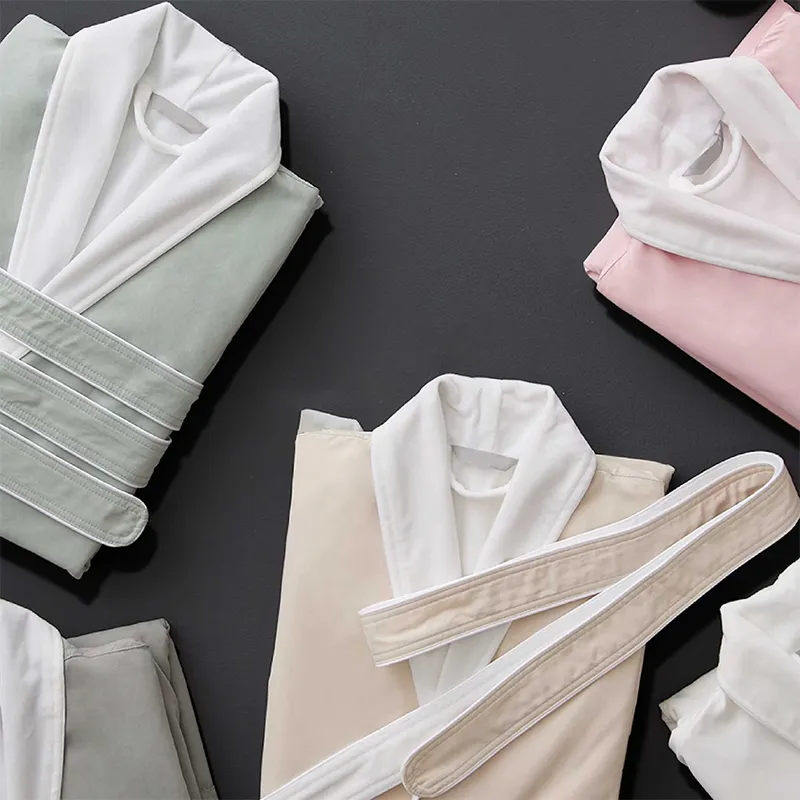
Application Specificity: types of towels in a hotel room
Understanding the specific needs of different areas within a hotel is crucial for efficient procurement.
- Bath Towels & Sheets: Primarily long-staple cotton (Egyptian, Pima, Turkish) for luxury, or high-quality combed cotton for standard rooms. GSM typically ranges from 500-800 for bath towels, ensuring plushness and absorbency.
- Hand Towels & types of washcloth: Often match bath towels in material but with slightly lower GSM (350-500 GSM). Durability and stain resistance are key.
- Pool & Beach Towels: Often a cotton-polyester blend for faster drying, increased durability, and color retention under sun exposure. Larger dimensions and distinctive colors/patterns are common.
- Spa & Salon Towels: High-absorbency, often white or dark-colored to resist chemical staining. Cotton or cotton-bamboo blends are favored for softness and gentle touch on skin and hair.
Technical Advantages & Vendor Comparison
Selecting the right vendor and material offers significant technical advantages, contributing to operational efficiency and guest satisfaction. This involves assessing not just the raw material but also the weave, finishing treatments, and the supplier's commitment to quality.
Comparative Technical Advantages
- Absorbency: Higher absorbency means less drying time for guests and more effective moisture management. Microfiber excels here, followed by long-staple cotton.
- Durability & Tensile Strength: Critical for resisting wear and tear from industrial laundering. Ring-spun cotton and polyester blends offer superior tensile strength and edge integrity.
- Drying Efficiency: Faster drying times reduce energy consumption and operational costs for laundry facilities. Microfiber and open-end cotton blends are excellent for this.
- Lint Resistance: A key factor in preventing textile contamination, especially important for healthcare and fine dining settings. Shear-finished or tightly woven materials reduce lint.
- Color Fastness: Essential for maintaining aesthetic appeal over many washes, particularly for colored towels. Reactive dyeing processes and high-quality dyes are crucial.
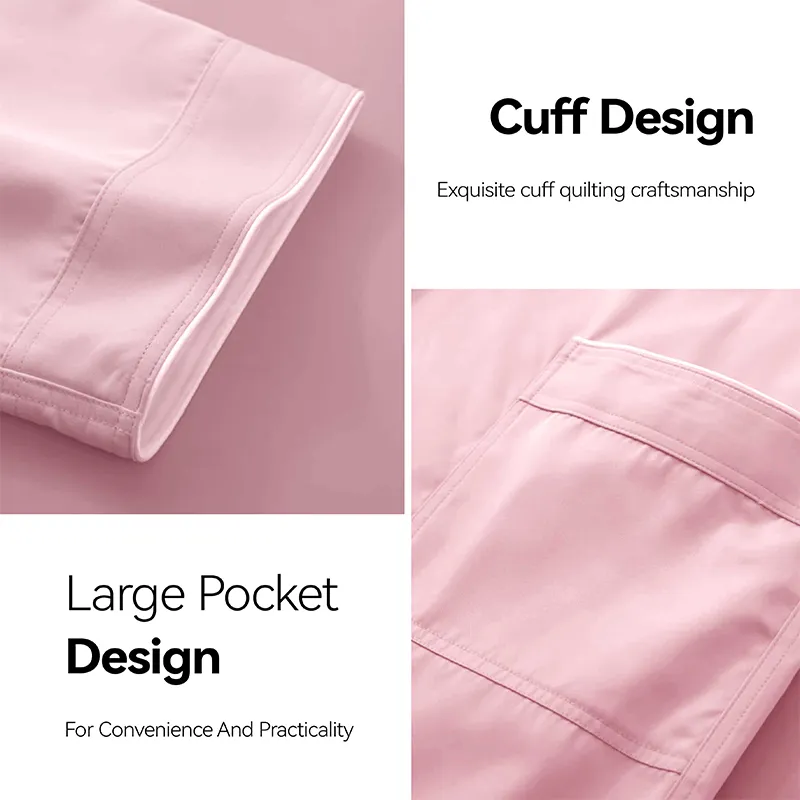
Vendor Comparison: Key Criteria
When evaluating suppliers for various types of towels used in hotels and other professional settings, consider:
| Criterion | Explanation | Impact on Business |
|---|---|---|
| Certifications | ISO 9001 (Quality), OEKO-TEX (Safety), GOTS (Organic). | Ensures product reliability, safety, and ethical sourcing. Boosts brand reputation. |
| GSM Consistency | Gram per Square Meter adherence for specific towel types. | Guarantees consistent quality, feel, and performance across batches. |
| Lead Time & Logistics | Production and delivery schedules, global shipping capabilities. | Minimizes stock-outs, ensures timely supply for ongoing operations or new openings. |
| Customization Options | Ability to tailor weaves, colors, sizes, and logo embroidery. | Brand differentiation, specific aesthetic or functional requirements met. |
| After-Sales Support | Warranty, issue resolution, product advice, reordering ease. | Long-term partnership, confidence in product longevity and vendor reliability. |
Customized Solutions & Application Case Studies
Bespoke towel solutions provide distinct competitive advantages, allowing businesses to align their linen inventory precisely with brand image, operational demands, and guest expectations. Customization extends beyond mere branding to material composition and functional finishes.
Tailored Material Blends & Finishes
- Optimal GSM & Pile Height: Customizing the Grams per Square Meter (GSM) and the height of the terry loops can drastically alter a towel's absorbency, drying speed, and plushness, catering to specific price points and luxury levels.
- Specialized Treatments: The application of specific finishes, such as antimicrobial coatings (e.g., silver ion technology), quick-dry treatments, or enhanced stain resistance, can be tailored to meet the rigorous demands of healthcare, food service, or high-volume hospitality.
- Fiber Blends for Performance: For example, a 70% cotton / 30% recycled polyester blend can be engineered for hotels requiring the comfort of cotton with enhanced durability and quicker drying cycles for their types of towels and their uses in a high-turnover environment.
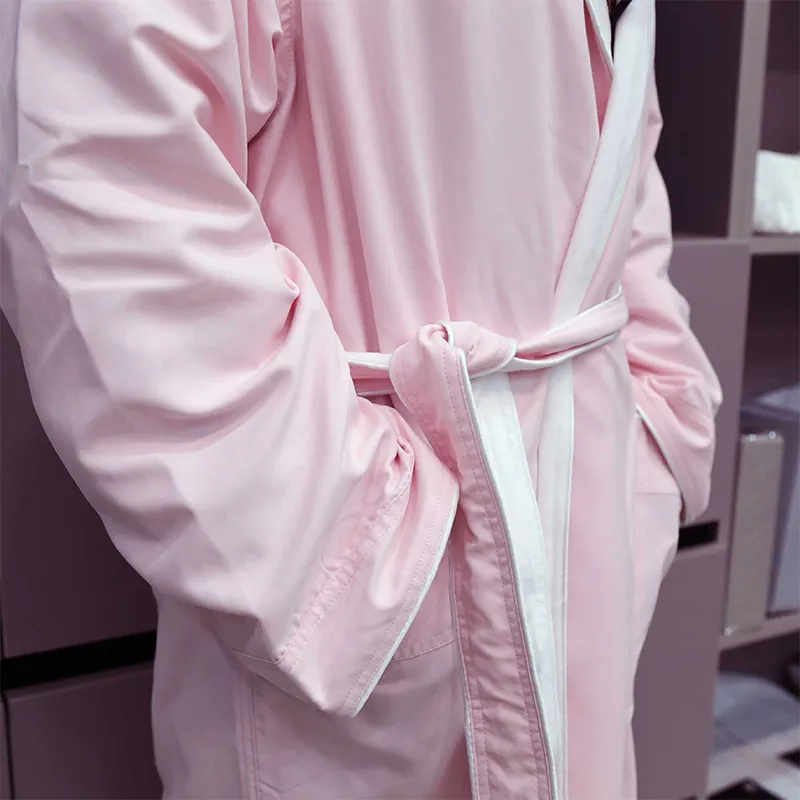
Case Study 1: Luxury Hotel Chain - Enhanced Guest Experience & Cost Savings
A prominent luxury hotel chain aimed to upgrade its guest experience while simultaneously reducing laundry operational costs. They partnered with a textile manufacturer to develop a custom Egyptian cotton blend towel (650 GSM) treated with a proprietary quick-dry finish.
- Challenge: Existing towels were plush but took excessively long to dry, increasing energy consumption and turnaround times.
- Solution: Implementation of custom-engineered towels offering the desired softness and absorbency of luxury cotton, combined with a 25% reduction in drying time.
- Outcome: A 15% reduction in annual laundry energy costs, a 20% increase in towel lifespan due to optimized drying cycles, and a noticeable improvement in guest satisfaction scores related to linen quality.
Case Study 2: Hospital Group - Superior Hygiene & Durability for types of washcloth
A regional hospital network required linens that could withstand rigorous medical-grade washing while offering superior hygiene and patient comfort.
- Challenge: Standard cotton towels degraded quickly under high-temperature washing and frequent chemical exposure, leading to high replacement costs and concerns about lint and microbial retention.
- Solution: A bespoke microfiber blend (70% Polyester, 30% Polyamide) for patient bath towels and surgical cleaning cloths. These were engineered for high tensile strength, rapid drying, and were certified for repeated sanitization cycles.
- Outcome: A 40% reduction in replacement frequency, a 30% decrease in laundry cycle times, and documented improvements in surface cleanliness verified by adenosine triphosphate (ATP) testing.
Trustworthiness & Support: FAQs, Lead Times, and Warranty
Frequently Asked Questions (FAQs)
Q: What is GSM, and why is it important for types of towel material?
A: GSM stands for Grams per Square Meter and indicates the density of the fabric. Higher GSM (e.g., 600-800) typically means a thicker, more plush, and absorbent towel, often preferred for luxury applications. Lower GSM (e.g., 350-450) towels are lighter, faster drying, and more cost-effective for high-volume use or as types of washcloth.
Q: How do I choose between cotton and microfiber for hotel towels?
A: Cotton, especially long-staple varieties, offers superior softness and a classic luxury feel, ideal for bath towels in premium hotel rooms. Microfiber provides exceptional absorbency, quick-drying properties, and durability, making it excellent for pool towels, gym towels, or specific cleaning applications where efficiency and hygiene are paramount.
Q: Are your towels compliant with industry standards?
A: Absolutely. Our manufacturing processes and final products adhere to stringent international standards, including ISO 9001 for quality management and OEKO-TEX Standard 100 for textile safety and absence of harmful substances. Specific product lines may also carry GOTS certification for organic content.
Q: Can you provide custom branding or specific dimensions?
A: Yes, we specialize in customized solutions. We can accommodate specific dimensions, custom colors, woven patterns, and logo embroidery to perfectly match your brand's aesthetic and functional requirements. Please contact our sales team to discuss your bespoke project.
Lead Time and Fulfillment
Standard orders for in-stock types of towel material typically have a lead time of 2-4 weeks for production and shipping, depending on volume and destination. Customized orders, involving specific material blends, dyeing, or embroidery, may require 6-10 weeks from design approval to delivery. We leverage a robust global logistics network to ensure efficient and timely fulfillment, providing detailed tracking and dedicated account management throughout the process.
Warranty Commitments
We stand by the quality and durability of our textile products. All our B2B towel materials come with a comprehensive 1-year limited warranty against manufacturing defects under normal commercial use and adherence to recommended care instructions. This commitment underscores our confidence in the superior craftsmanship and longevity of our products, minimizing your total cost of ownership.
Dedicated Customer Support
Our expert customer support team is available from Monday to Friday, 9:00 AM - 5:00 PM (EST), to assist with product inquiries, order placement, technical specifications, and after-sales service. We offer multi-channel support including phone, email, and a dedicated B2B portal for seamless communication and order management. Our goal is to forge lasting partnerships by providing unparalleled service and reliable, high-performance textile solutions.
Conclusion
The strategic selection of types of towel material is a cornerstone of operational excellence and guest satisfaction in the hospitality and healthcare sectors. By understanding the intricate manufacturing processes, technical specifications, and prevailing industry trends, businesses can make informed decisions that yield superior performance, extended service life, and significant cost efficiencies. Partnering with a knowledgeable and certified supplier ensures access to high-quality, customized solutions that elevate brand standards and meet the evolving demands of discerning clientele.
References
- Textile Industry Market Analysis Report, Grand View Research, 2023.
- ASTM International Standards on Textiles, American Society for Testing and Materials.
- OEKO-TEX Standard 100 Certification Guidelines, Oeko-Tex Association.
- Global Organic Textile Standard (GOTS) Version 6.0, Organic Textile Exchange.
- ISO 9001:2015 Quality Management Systems - Requirements, International Organization for Standardization.
-
Garment Washed Sheets Color Retention Prevents Fading After WashesNewsNov.14, 2025
-
Charcoal Bamboo Sheets Moisture-Wicking Property Enhances Sleep ComfortNewsNov.12, 2025
-
High Quality Satin Sheets Soft Touch Improves Hotel Guest ExperienceNewsNov.12, 2025
-
Poly Cotton Sheets Breathable Weave Reduces Skin Irritation For PatientsNewsNov.12, 2025
-
Microfiber Sheet Stain Resistant Feature Eases Hotel HousekeepingNewsNov.12, 2025
-
Polyester Cotton Bedding Durable Fabric Withstands Frequent Hotel WashesNewsNov.12, 2025
-
Microfiber Pillow Filling Even Distribution Prevents LumpingNewsNov.03, 2025
Ultimate Guide: Types of Towel Material for Every Need
Understanding the Core: types of towel material in B2B Applications
In the discerning world of B2B procurement, particularly within the hospitality, healthcare, and wellness sectors, the selection of towel materials is a critical decision impacting both operational efficiency and end-user experience. Beyond mere aesthetics, the underlying types of towel material dictate performance characteristics such as absorbency, durability, drying time, linting, and tactile comfort. This comprehensive guide delves into the technical specifications, manufacturing processes, and strategic considerations for selecting optimal towel materials for professional environments, ensuring long-term value and superior service delivery.

The global textile industry for hospitality and institutional linen is a multi-billion dollar market, with projections indicating continued growth driven by rising standards in guest experience and hygiene. Data from industry reports suggest that the global hotel linen market alone is expected to reach approximately $15-20 billion by 2028, with a significant portion attributed to high-quality towel procurement. Understanding the intrinsic properties of different types of towel material is paramount for businesses aiming to optimize costs without compromising quality.
Manufacturing Process Flow of Advanced Towel Materials
The journey from raw fiber to a high-performance towel is a sophisticated multi-stage process involving precision engineering and stringent quality control. The specific types of towel material dictate variations in this flow, but core principles remain consistent, focusing on fiber preparation, weaving/knitting, and specialized finishing.
1. Fiber Sourcing & Preparation
Selection of premium raw fibers (e.g., long-staple cotton, bamboo, microfiber polymers). Ginning, cleaning, and carding to align fibers and remove impurities. Blending for composite materials.
2. Spinning & Yarn Production
Fibers are spun into yarns. Techniques include ring spinning for strength and fineness, open-end spinning for bulk, or vortex spinning for low lint. Critical for yarn count and twist.
3. Weaving/Knitting
Yarns are woven (e.g., terry loom for loops, dobby for patterns) or knitted (e.g., warp knit for microfiber). Pile height, density (GSM), and base weave structure are formed.
4. Dyeing & Finishing
Desizing, scouring, bleaching, and mercerization to enhance strength, luster, and dye uptake. Dyeing for color consistency and fastness. Softeners, anti-microbial treatments, and quick-dry finishes applied.
5. Cutting & Stitching
Fabric is cut to specified dimensions. Hemming and stitching using industrial-grade machines for durability and anti-fray properties. Reinforcement at stress points.
6. Quality Control & Packaging
Rigorous testing for GSM, color fastness, absorbency, tensile strength, and shrinkage. ISO 9001, OEKO-TEX Standard 100 compliance. Folding, packaging, and dispatch.

Testing Standards & Service Life
Adherence to international testing standards is non-negotiable. Key certifications include ISO 9001 for quality management, OEKO-TEX Standard 100 for harmful substances, and ASTM D5034 for tensile strength. For professional use, a towel's service life is paramount. Premium cotton terry towels, with proper care and laundering, can withstand 200-300 industrial washes, while high-grade microfiber options can exceed 500 wash cycles, demonstrating exceptional return on investment.
Target industries include hospitality (hotels, resorts, spas), healthcare (hospitals, clinics, nursing homes), fitness (gyms, sports clubs), and commercial cleaning. Advantages in these scenarios include superior absorbency, rapid drying, enhanced durability for frequent industrial laundering, and resistance to common staining agents, leading to significant energy savings and extended product life cycles.
Key types of towel material and Their Technical Specifications
The market offers a diverse range of types of towel material, each engineered with specific properties to excel in various applications. Understanding these differences is crucial for informed procurement.
1. Cotton
The perennial standard, cotton offers natural softness and high absorbency. Variations include:
- Egyptian/Pima Cotton: Known for extra-long staple fibers, providing exceptional softness, strength, and absorbency. Ideal for luxury hotels and high-end spas.
- Turkish Cotton: Long staple fibers, renowned for being dense, absorbent, and developing a soft sheen over time. Excellent for bath towels and robes.
- Upland Cotton: Shorter fibers, more common and economical, suitable for general-purpose towels and hospitality settings where cost-efficiency is key for types of washcloth and hand towels.
- Organic Cotton: Grown without pesticides or synthetic fertilizers, appealing to eco-conscious brands.

2. Microfiber
Typically a blend of polyester and polyamide (nylon), microfiber towels feature extremely fine synthetic fibers, usually less than one denier. This structure creates a massive surface area and capillary action.
- Technical Advantages: Exceptional absorbency (up to 7-8 times its weight), rapid drying (significantly reducing laundry cycles), lint-free properties, and superior cleaning capabilities. Highly durable.
- Applications: Healthcare (due to lint-free and quick-dry hygienic properties), gyms, car detailing, and specialized cleaning.

3. Bamboo
Made from bamboo cellulose, these towels are highly sustainable and possess natural anti-bacterial properties.
- Technical Advantages: Exceptionally soft, highly absorbent, hypoallergenic, and resistant to mildew. More eco-friendly in production than traditional cotton.
- Applications: Eco-resorts, spas, high-end hospitality, and sensitive skin applications.
4. Blends (Cotton-Poly, Cotton-Bamboo)
Engineered blends combine the best attributes of different fibers.
- Cotton-Polyester: Often used for durability and reduced shrinkage, particularly in institutional settings. Polyester adds strength and faster drying to some types of towels used in hotels.
- Cotton-Bamboo: Enhances softness, absorbency, and natural antibacterial properties while retaining cotton's familiar feel.
Product Specification Table: Common Towel Material Types
| Material Type | Key Characteristics | Absorbency (Weight % Water) | Drying Time (Relative) | Durability (Wash Cycles) | Primary Application |
|---|---|---|---|---|---|
| Egyptian Cotton (Long-Staple) | Luxurious softness, high absorbency, strong fibers. | ~25-30% | Moderate | 200-300+ | Luxury Hospitality, Spas |
| Microfiber (80/20 Poly/Nylon) | Ultra-absorbent, quick-drying, lint-free, excellent cleaning. | ~70-80% | Very Fast | 500+ | Healthcare, Fitness, Cleaning |
| Bamboo Viscose | Soft, hypoallergenic, naturally antibacterial, sustainable. | ~20-25% | Moderate to Fast | Eco-conscious Hospitality, Spas | |
| Standard Upland Cotton | Good absorbency, economical, widely available. | ~15-20% | Slow | General Hospitality, Budget Hotels |
Industry Trends & Application Scenarios
The B2B textile market for towels is continually evolving, driven by innovation in materials science and shifting consumer preferences. Current trends emphasize sustainability, enhanced hygiene, and multi-functional performance. The choice of types of towel material often aligns with these strategic imperatives.
Sustainability Initiatives
There's a growing demand for eco-friendly types of towel material, including organic cotton, bamboo, and recycled polyester blends. Certifications like GOTS (Global Organic Textile Standard) and OEKO-TEX are increasingly sought after by hotel chains and healthcare facilities to demonstrate environmental responsibility and appeal to a conscious clientele. This trend influences the entire supply chain, from raw material sourcing to manufacturing processes that minimize water and energy consumption.
Enhanced Hygiene & Antimicrobial Properties
Especially pertinent for healthcare and high-traffic hospitality environments, towels with inherent antimicrobial properties or treated with silver ion technology are gaining traction. These materials inhibit bacterial growth, prolonging freshness and contributing to a safer environment. Microfiber towels, by their very structure, already offer a significant hygienic advantage due to their superior ability to pick up and trap microscopic particles and bacteria, making them ideal for various types of towels and their uses in clinical settings.

Application Specificity: types of towels in a hotel room
Understanding the specific needs of different areas within a hotel is crucial for efficient procurement.
- Bath Towels & Sheets: Primarily long-staple cotton (Egyptian, Pima, Turkish) for luxury, or high-quality combed cotton for standard rooms. GSM typically ranges from 500-800 for bath towels, ensuring plushness and absorbency.
- Hand Towels & types of washcloth: Often match bath towels in material but with slightly lower GSM (350-500 GSM). Durability and stain resistance are key.
- Pool & Beach Towels: Often a cotton-polyester blend for faster drying, increased durability, and color retention under sun exposure. Larger dimensions and distinctive colors/patterns are common.
- Spa & Salon Towels: High-absorbency, often white or dark-colored to resist chemical staining. Cotton or cotton-bamboo blends are favored for softness and gentle touch on skin and hair.
Technical Advantages & Vendor Comparison
Selecting the right vendor and material offers significant technical advantages, contributing to operational efficiency and guest satisfaction. This involves assessing not just the raw material but also the weave, finishing treatments, and the supplier's commitment to quality.
Comparative Technical Advantages
- Absorbency: Higher absorbency means less drying time for guests and more effective moisture management. Microfiber excels here, followed by long-staple cotton.
- Durability & Tensile Strength: Critical for resisting wear and tear from industrial laundering. Ring-spun cotton and polyester blends offer superior tensile strength and edge integrity.
- Drying Efficiency: Faster drying times reduce energy consumption and operational costs for laundry facilities. Microfiber and open-end cotton blends are excellent for this.
- Lint Resistance: A key factor in preventing textile contamination, especially important for healthcare and fine dining settings. Shear-finished or tightly woven materials reduce lint.
- Color Fastness: Essential for maintaining aesthetic appeal over many washes, particularly for colored towels. Reactive dyeing processes and high-quality dyes are crucial.

Vendor Comparison: Key Criteria
When evaluating suppliers for various types of towels used in hotels and other professional settings, consider:
| Criterion | Explanation | Impact on Business |
|---|---|---|
| Certifications | ISO 9001 (Quality), OEKO-TEX (Safety), GOTS (Organic). | Ensures product reliability, safety, and ethical sourcing. Boosts brand reputation. |
| GSM Consistency | Gram per Square Meter adherence for specific towel types. | Guarantees consistent quality, feel, and performance across batches. |
| Lead Time & Logistics | Production and delivery schedules, global shipping capabilities. | Minimizes stock-outs, ensures timely supply for ongoing operations or new openings. |
| Customization Options | Ability to tailor weaves, colors, sizes, and logo embroidery. | Brand differentiation, specific aesthetic or functional requirements met. |
| After-Sales Support | Warranty, issue resolution, product advice, reordering ease. | Long-term partnership, confidence in product longevity and vendor reliability. |
Customized Solutions & Application Case Studies
Bespoke towel solutions provide distinct competitive advantages, allowing businesses to align their linen inventory precisely with brand image, operational demands, and guest expectations. Customization extends beyond mere branding to material composition and functional finishes.
Tailored Material Blends & Finishes
- Optimal GSM & Pile Height: Customizing the Grams per Square Meter (GSM) and the height of the terry loops can drastically alter a towel's absorbency, drying speed, and plushness, catering to specific price points and luxury levels.
- Specialized Treatments: The application of specific finishes, such as antimicrobial coatings (e.g., silver ion technology), quick-dry treatments, or enhanced stain resistance, can be tailored to meet the rigorous demands of healthcare, food service, or high-volume hospitality.
- Fiber Blends for Performance: For example, a 70% cotton / 30% recycled polyester blend can be engineered for hotels requiring the comfort of cotton with enhanced durability and quicker drying cycles for their types of towels and their uses in a high-turnover environment.

Case Study 1: Luxury Hotel Chain - Enhanced Guest Experience & Cost Savings
A prominent luxury hotel chain aimed to upgrade its guest experience while simultaneously reducing laundry operational costs. They partnered with a textile manufacturer to develop a custom Egyptian cotton blend towel (650 GSM) treated with a proprietary quick-dry finish.
- Challenge: Existing towels were plush but took excessively long to dry, increasing energy consumption and turnaround times.
- Solution: Implementation of custom-engineered towels offering the desired softness and absorbency of luxury cotton, combined with a 25% reduction in drying time.
- Outcome: A 15% reduction in annual laundry energy costs, a 20% increase in towel lifespan due to optimized drying cycles, and a noticeable improvement in guest satisfaction scores related to linen quality.
Case Study 2: Hospital Group - Superior Hygiene & Durability for types of washcloth
A regional hospital network required linens that could withstand rigorous medical-grade washing while offering superior hygiene and patient comfort.
- Challenge: Standard cotton towels degraded quickly under high-temperature washing and frequent chemical exposure, leading to high replacement costs and concerns about lint and microbial retention.
- Solution: A bespoke microfiber blend (70% Polyester, 30% Polyamide) for patient bath towels and surgical cleaning cloths. These were engineered for high tensile strength, rapid drying, and were certified for repeated sanitization cycles.
- Outcome: A 40% reduction in replacement frequency, a 30% decrease in laundry cycle times, and documented improvements in surface cleanliness verified by adenosine triphosphate (ATP) testing.
Trustworthiness & Support: FAQs, Lead Times, and Warranty
Frequently Asked Questions (FAQs)
Q: What is GSM, and why is it important for types of towel material?
A: GSM stands for Grams per Square Meter and indicates the density of the fabric. Higher GSM (e.g., 600-800) typically means a thicker, more plush, and absorbent towel, often preferred for luxury applications. Lower GSM (e.g., 350-450) towels are lighter, faster drying, and more cost-effective for high-volume use or as types of washcloth.
Q: How do I choose between cotton and microfiber for hotel towels?
A: Cotton, especially long-staple varieties, offers superior softness and a classic luxury feel, ideal for bath towels in premium hotel rooms. Microfiber provides exceptional absorbency, quick-drying properties, and durability, making it excellent for pool towels, gym towels, or specific cleaning applications where efficiency and hygiene are paramount.
Q: Are your towels compliant with industry standards?
A: Absolutely. Our manufacturing processes and final products adhere to stringent international standards, including ISO 9001 for quality management and OEKO-TEX Standard 100 for textile safety and absence of harmful substances. Specific product lines may also carry GOTS certification for organic content.
Q: Can you provide custom branding or specific dimensions?
A: Yes, we specialize in customized solutions. We can accommodate specific dimensions, custom colors, woven patterns, and logo embroidery to perfectly match your brand's aesthetic and functional requirements. Please contact our sales team to discuss your bespoke project.
Lead Time and Fulfillment
Standard orders for in-stock types of towel material typically have a lead time of 2-4 weeks for production and shipping, depending on volume and destination. Customized orders, involving specific material blends, dyeing, or embroidery, may require 6-10 weeks from design approval to delivery. We leverage a robust global logistics network to ensure efficient and timely fulfillment, providing detailed tracking and dedicated account management throughout the process.
Warranty Commitments
We stand by the quality and durability of our textile products. All our B2B towel materials come with a comprehensive 1-year limited warranty against manufacturing defects under normal commercial use and adherence to recommended care instructions. This commitment underscores our confidence in the superior craftsmanship and longevity of our products, minimizing your total cost of ownership.
Dedicated Customer Support
Our expert customer support team is available from Monday to Friday, 9:00 AM - 5:00 PM (EST), to assist with product inquiries, order placement, technical specifications, and after-sales service. We offer multi-channel support including phone, email, and a dedicated B2B portal for seamless communication and order management. Our goal is to forge lasting partnerships by providing unparalleled service and reliable, high-performance textile solutions.
Conclusion
The strategic selection of types of towel material is a cornerstone of operational excellence and guest satisfaction in the hospitality and healthcare sectors. By understanding the intricate manufacturing processes, technical specifications, and prevailing industry trends, businesses can make informed decisions that yield superior performance, extended service life, and significant cost efficiencies. Partnering with a knowledgeable and certified supplier ensures access to high-quality, customized solutions that elevate brand standards and meet the evolving demands of discerning clientele.
References
- Textile Industry Market Analysis Report, Grand View Research, 2023.
- ASTM International Standards on Textiles, American Society for Testing and Materials.
- OEKO-TEX Standard 100 Certification Guidelines, Oeko-Tex Association.
- Global Organic Textile Standard (GOTS) Version 6.0, Organic Textile Exchange.
- ISO 9001:2015 Quality Management Systems - Requirements, International Organization for Standardization.
-
Garment Washed Sheets Color Retention Prevents Fading After WashesNewsNov.14, 2025
-
Charcoal Bamboo Sheets Moisture-Wicking Property Enhances Sleep ComfortNewsNov.12, 2025
-
High Quality Satin Sheets Soft Touch Improves Hotel Guest ExperienceNewsNov.12, 2025
-
Poly Cotton Sheets Breathable Weave Reduces Skin Irritation For PatientsNewsNov.12, 2025
-
Microfiber Sheet Stain Resistant Feature Eases Hotel HousekeepingNewsNov.12, 2025
-
Polyester Cotton Bedding Durable Fabric Withstands Frequent Hotel WashesNewsNov.12, 2025
-
Microfiber Pillow Filling Even Distribution Prevents LumpingNewsNov.03, 2025






